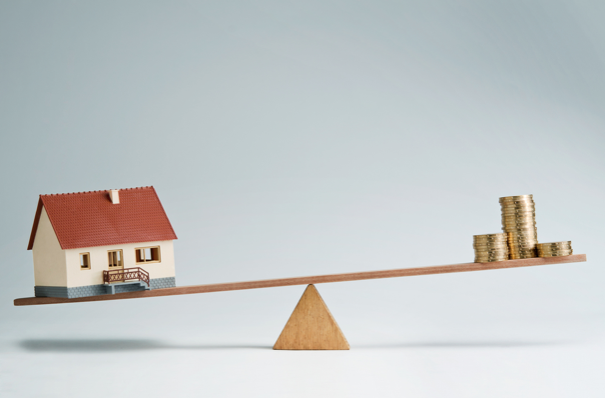
There are lots of things you should consider before you invest in a rental property. Real estate is a much more expensive investment than other kinds of purchases, but that’s why it can offer the most financially lucrative rewards.
Still, you shouldn’t get an investment property until you’ve thoroughly weighed the pros and cons, lest you regret your purchase or wind up going into bankruptcy. Here are the pros and cons of investing in rental property.
Cons
1. Time-consuming
When you purchase a rental property, you become a landlord—and being a landlord can be hard work. Landlords are in charge of handling maintenance issues for tenants, like broken plumbing, faulty electrical outlets, or termite infestations.
Many rental property owners think that when they buy an investment property, they’re just able to kick back and let the money roll in. But in reality, landlords have to work constantly to keep the property habitable for tenants, or else tenants are legally able to withhold rent until the maintenance issues are fixed. If you plan on owning several rental properties, you’ll have to handle maintenance issues on all of them.
Thankfully, you can make your life a whole lot easier by enlisting the services of a property management company. For a fee, these companies will handle rent collection and maintenance issues for you. The downside is that you’ll lose a little bit of your earnings.
2. Tough to Find Tenants
Finding tenants can be a nonstop battle, and if your property goes unoccupied for only a few weeks, you could wind up losing money. If your property is located in an area where there’s little demand for housing, you’ll have a difficult time finding tenants just because there aren’t a whole lot of tenants to choose from. If your property is located in a competitive real estate market, you might have difficulty finding tenants because there are so many other properties to compete with. You’ll have to rely on good digital marketing strategies, like SEO marketing and social media campaigns.
3. Bad Tenants
Bad tenants can be the bane of your landlord existence. These are tenants who break lease terms and who damage the property. Landlord horror stories include tenants who are criminals and who bring their criminal activities onto the property. Other horror stories feature tenants who damage walls, or who can’t be evicted due to technicalities (be sure to have tenant eviction lawyers on hand). Or, you might get tenants who are unable to pay rent—even when you evict them, you’ll have lost a considerable amount of time and money.
But there’s an upside. The best way to avoid bad tenants is to get good tenants. You can use a tenant screening service to evaluate prospective tenants and make sure they have a clean legal history and stable finances. These services can help you get respectful and responsible tenants for your property.
Pros
1. Additional Revenue
The best and most obvious advantage to owning a rental property is that you can gain additional revenue from the rent your tenants pay. You can use that revenue for anything you want: paying off the property, stocking up a savings account, or getting another rental property—the choice is yours.
Most investment property owners use their rent earnings to pay off the mortgage loan on the property, but the rent is oftentimes higher than the mortgage payment, so they have extra cash to pocket.
Typically, rental properties are purchased through an investment property loan, which is usually paid off in only a few years. It’s common for new rental property owners to not make a substantial profit for the first few years. But once the loan is paid off, an investment property really begins to pay.
Of course, in order to make money you’ll need to spend some money. Depending on your financial circumstances, it might be difficult to save up for an initial down payment on property. Definitely do some research on the cheapest and most expensive cities to buy homes, and develop a budget before you seek financing.
2. Appreciating Property
In most places, especially in hot real estate markets like California, properties appreciate in value. It’s safe to say that in 10 years from now, your rental property would be worth more than at the time you bought it.
Houses, however, usually depreciate in value. But you can get tax compensations for home depreciation.

4. Increase Your Wealth
For most Americans, the majority of wealth comes from homeownership. That’s another great long-term advantage of owning a rental property. The more properties you own, the greater the wealth you’ll have.
You can get a good overview of the current rent control by state wit this interactive map which gives you a detailed insight into what it looks like.


